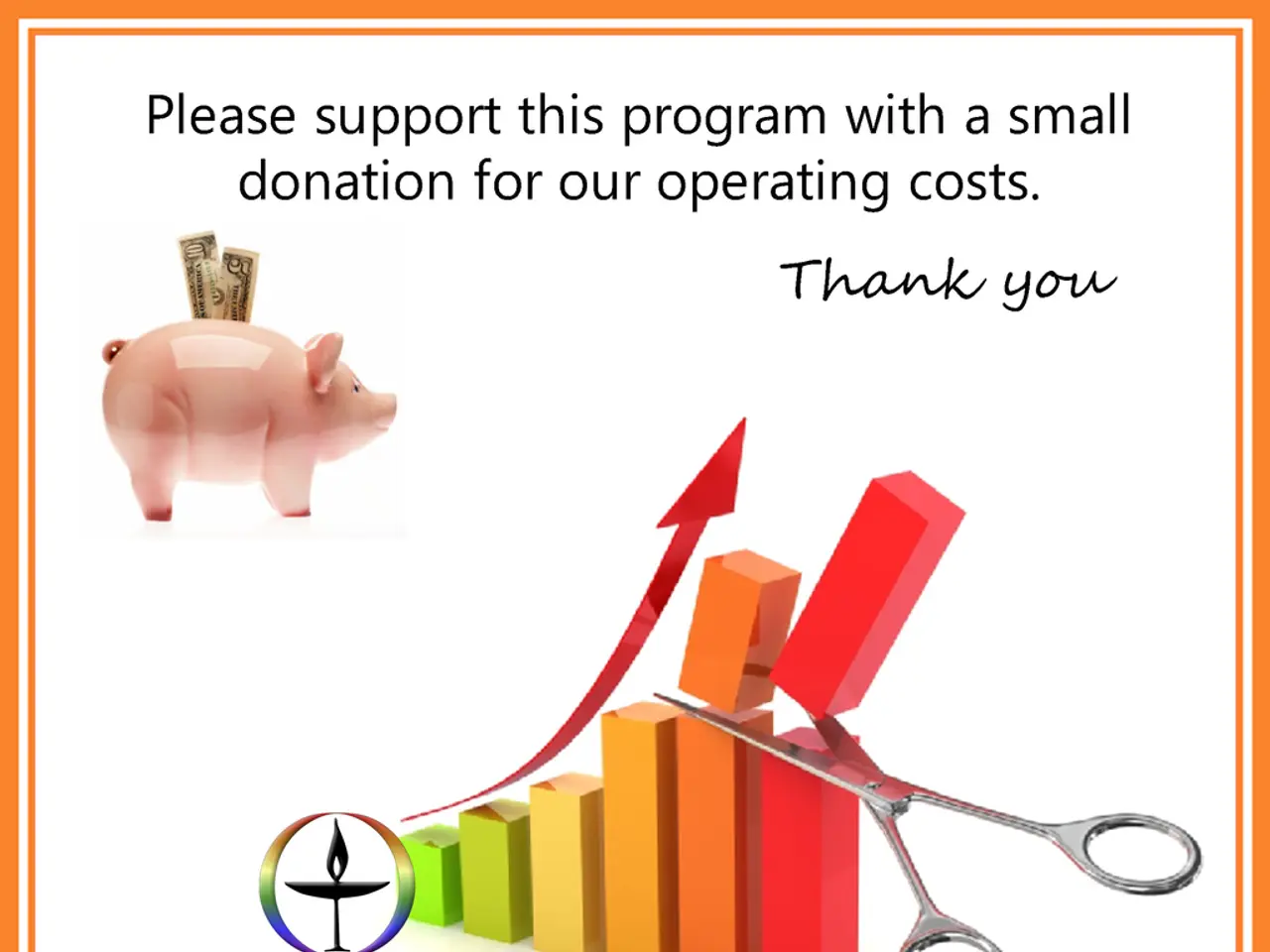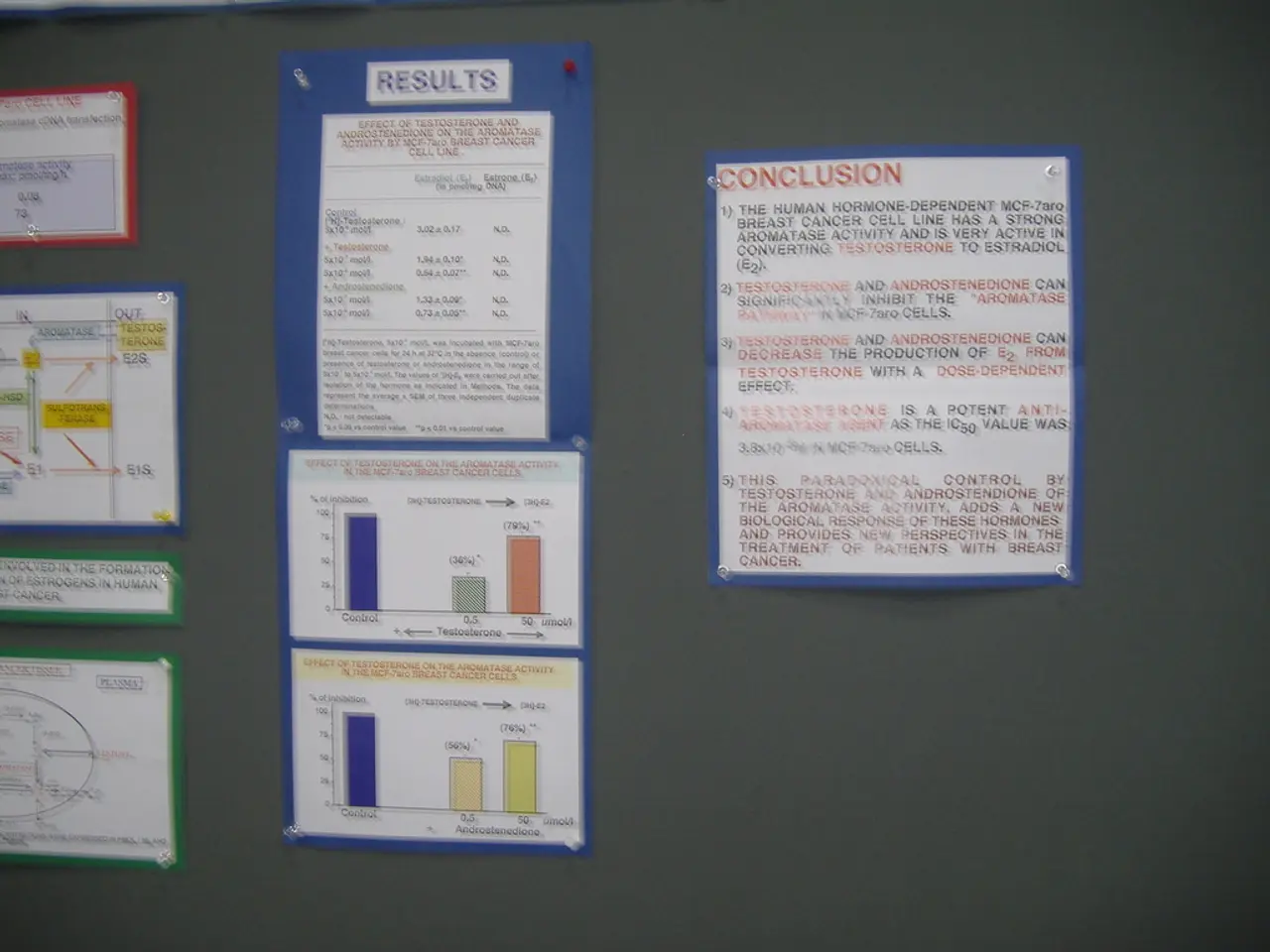Identifying Distinctions: Product Leadership vs. Project Oversight
In the dynamic world of business, two key roles play a crucial part in the success of a product - the Product Manager and the Project Manager. While they may seem similar, their roles, responsibilities, skills, and educational backgrounds differ significantly.
A Product Manager focuses on the long-term strategy and vision of a product. They define the product, set direction, create product vision and strategy, and prioritise the roadmap. Understanding user needs, analysing competitors, and market trends is essential for a Product Manager, who oversees product development, growth, and market success. Their key tasks include getting stakeholder buy-in, feature prioritisation, beta testing, and product performance analysis. They work closely with teams to ensure the product meets customer needs, and their KPIs are centred on product success metrics and growth.
On the other hand, a Project Manager concentrates on the execution and delivery of specific projects within defined scope, time, and budget. They manage the project plan, schedules, resources, and ensure that project milestones are met. Problem-solving is key to keep project activities on track. A Project Manager coordinates tasks within one project or initiative, managing daily team collaboration. Their metrics are focused on project completion on schedule and within budget.
The Product Manager acts like a ship’s captain directing to the strategic destination, while the Project Manager is the navigator ensuring the journey runs smoothly and on time.
Product Managers need strategic thinking and vision-setting, strong communication to unify cross-functional teams, market research and customer empathy, prioritization and decision-making, analytical skills to track product metrics, and leadership to align stakeholders behind product goals.
Project Managers, meanwhile, require planning and organisational skills, risk management and problem-solving abilities, proficiency with project management tools and methodologies, clear communication for team coordination, time and budget management, and the ability to handle project scope and resource allocation effectively.
Product Managers often have backgrounds in business, marketing, computer science, engineering, or design, with experience in business strategy, product development, or customer research. Formal product management training or certifications can be beneficial but not always mandatory. Project Managers, however, typically come from fields like business administration, management, engineering, or IT, often holding project management certifications such as PMP (Project Management Professional), PRINCE2, or Agile certifications.
While both roles require strong management skills and communication, the Product Manager is more focused on the "what" and "why" of the product aligned with business goals, whereas the Project Manager centres on the "how" and "when" to deliver a project on track and on budget.
In summary, while both roles are complementary and crucial, they aim at different outcomes in the lifecycle of product development and project execution. The Product Manager guides development planning and lays out a product's goals, strategy, priorities, and progress, while the Project Manager translates this vision into daily or monthly work, coordinating material and human resources to achieve the objectives set by the Product Manager.
[1] https://www.pmi.org/learning/thought-leadership/pulse-of-the-profession [2] https://www.productschool.com/blog/product-manager-vs-project-manager/ [3] https://www.pmi.org/learning/thought-leadership/pulse-of-the-profession-2017 [4] https://www.forbes.com/sites/forbescoachescouncil/2018/09/04/product-managers-vs-project-managers-what-are-the-key-differences/?sh=76d154242f48 [5] https://www.pmi.org/learning/thought-leadership/pulse-of-the-profession-2019
A successful app design may fall under the responsibility of a Product Manager in a technology-driven business, as they focus on the long-term strategy and vision of the product. Understanding user needs and market trends is essential for a Product Manager, who oversees the app development, growth, and market success.
To ensure the smooth execution and delivery of the app design project, a Project Manager with proficiency in project management tools and methodologies, clear communication, and problem-solving skills will be essential. They will manage the project plan, schedules, resources, and ensure that project milestones are met, keeping the project activities on track.




